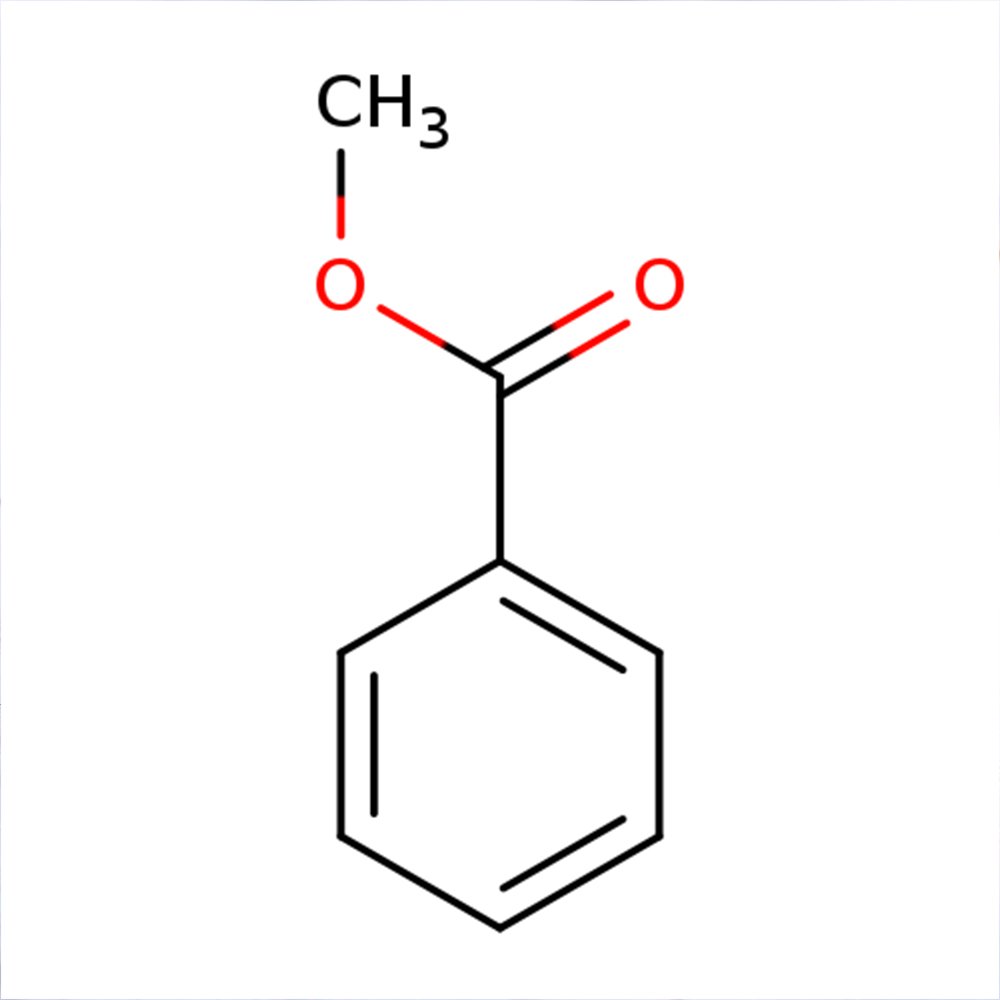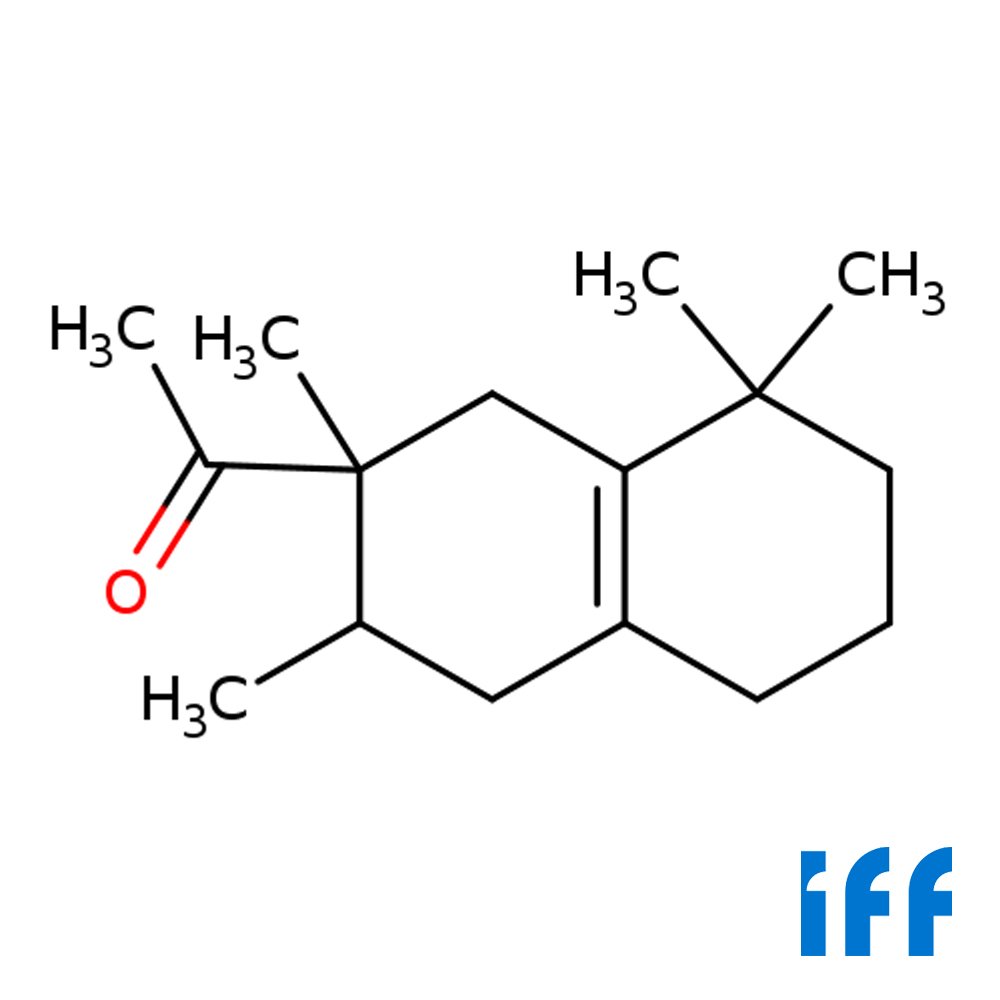Ambrocenide Crystals
Premium Synthetic Ingredient for Perfumery
Ambrocenide is a polycyclic synthetic ketone developed for fine fragrance applications, offering a radiant dry ambergris-like character with musky-woody facets. Available as a crystalline solid, it functions primarily as a base note fixative and amber-woody backbone. Ambrocenide exhibits excellent thermal and photostability, high olfactory intensity, and long-lasting tenacity.
It is widely used in amber, woody, fougère, and musky compositions where modern and clean drydown effects are required.
Premium Synthetic Ingredient for Perfumery
Ambrocenide is a polycyclic synthetic ketone developed for fine fragrance applications, offering a radiant dry ambergris-like character with musky-woody facets. Available as a crystalline solid, it functions primarily as a base note fixative and amber-woody backbone. Ambrocenide exhibits excellent thermal and photostability, high olfactory intensity, and long-lasting tenacity.
It is widely used in amber, woody, fougère, and musky compositions where modern and clean drydown effects are required.
Premium Synthetic Ingredient for Perfumery
Ambrocenide is a polycyclic synthetic ketone developed for fine fragrance applications, offering a radiant dry ambergris-like character with musky-woody facets. Available as a crystalline solid, it functions primarily as a base note fixative and amber-woody backbone. Ambrocenide exhibits excellent thermal and photostability, high olfactory intensity, and long-lasting tenacity.
It is widely used in amber, woody, fougère, and musky compositions where modern and clean drydown effects are required.
Technical Ingredient Overview
🏭 Manufacturer — Symrise
🔎 Chemical Name — Ambrocenide
🧪 Synonyms — Ambrocenide Crystals; Dodecahydro-3a,6,6,9a-tetramethylnaphtho[2,1-b]furan
🧬 Chemical Formula — C₁₆H₂₈O
📂 CAS — 211299-54-6
📘 FEMA — Not assigned
⚖️ MW — 236.39 g/mol
📝 Odor Type — Woody, amber
📈 Odor Strength — Medium to strong
👃🏼 Odor Profile — Dry ambergris, musky, warm, woody, radiant
⚗️ Uses — Fine fragrance base notes, fixative, amber-woody accords
🧴 Appearance — White to off-white crystalline solid
What is Ambrocenide?
Ambrocenide (CAS 211299-54-6) is a high-impact ambery woody molecule used primarily as a fixative and drydown enhancer in fine fragrance compositions. Classified as a polycyclic ketone, it is part of the modern generation of ambergris-type aroma chemicals, developed as synthetic analogues to natural ambergris for ethical, economic, and regulatory reasons (Sell, 2019).
It is available in crystalline solid form, with high purity and olfactory intensity. Ambrocenide offers a cleaner and more linear ambergris-type scent compared to older materials, providing both radiance and persistence in compositions. Notably, Ambroxan (another ambergris-type molecule) is also a crystalline solid and not a liquid, contrary to common misconceptions (Arctander, 1960; Sell, 2019).
Historical Background
While the full history of Ambrocenide's discovery is not public, its development is attributed to Firmenich, one of the key innovators in ambery musks. It likely emerged in the early 2000s in response to both increased demand for sustainable alternatives to animalic materials and the decline of nitro and polycyclic musks due to environmental and safety concerns (Sell, 2019).
The compound fits into the industry trend of formulating non-allergenic, photostable, and biodegradable ambergris substitutes, with Ambrocenide standing out for its crystalline purity, thermal stability, and versatility across olfactory families (Kraft, 2005).
Olfactory Profile
Scent Family: Ambery Woody Musky
Descriptors: Ambergris, dry wood, radiant musk, slightly powdery, clean
Intensity and Tenacity
Ambrocenide is considered medium-to-strong in odor intensity, with a long-lasting effect and excellent diffusive properties. It retains its olfactory character over time and does not degrade under UV or heat exposure (Arctander, 1960; Sell, 2019).
Applications in Fine Fragrance
Ambrocenide is widely used in:
Ambery orientals
Modern fougères
Woody musky floral blends
Signature base accords
Modern designer fragrances. Relatively affordable (the fragrance, not the ambrocenide) and widely used.
Typical use concentrations range from 0.1% to 2% depending on the desired impact. It performs best when paired with:
Ambroxan or Cetalox — for reinforced dry ambergris signature
White musks (e.g., Galaxolide) — for soft diffusion
Iso E Super — for woody-velvety transparency
In many cases, Ambrocenide is used to fix and extend the base notes, giving the fragrance a dry, elegant, and musky backbone (Sell, 2019).
Performance in Formula
Volatility: Low (excellent tenacity)
Fixative Power: Very high
Stability: Light- and heat-stable
Compatibility: Compatible with lactones, musks, ionones, esters, and woody aldehydes
Due to its crystalline nature, it is commonly pre-dissolved in dipropylene glycol (DPG) or ethanol before addition to formulas (Arctander, 1960).
Industrial & Technical Uses
Ambrocenide's technical use outside fine fragrance is limited, but it may be found in:
Luxury home fragrance
Scented candles
High-end personal care and fabric care, where long-lasting, elegant amber notes are required
Its high cost and niche olfactory profile prevent widespread use in mass-market products.
Regulatory & Safety Overview
IFRA (Amendment 51): No restrictions listed
GHS Classification: Not classified as hazardous
EU Cosmetics Regulation: Approved for cosmetic use
Allergen Profile: Not listed as a known allergen in Annex III
REACH Registration: Available under EC inventory
Toxicology:
Low dermal and oral toxicity
No mutagenicity or phototoxicity reported at standard usage levels (IFRA, 2023)
References
Arctander, S. (1960). Perfume and Flavor Chemicals (Aroma Chemicals). Montclair, NJ: Self-published.
Sell, C. S. (2019). The Chemistry of Fragrances (3rd ed.). Royal Society of Chemistry.
Kraft, P. (2005). Structure–Odor Relationships: Some Recent Examples. Chemical Biodiversity, 2(7), 905–926. https://doi.org/10.1002/cbdv.200590068
IFRA. (2023). IFRA Transparency List & Standards (51st Amendment). Retrieved from https://ifrafragrance.org
PubChem. (2024). Ambrocenide. https://pubchem.ncbi.nlm.nih.gov/compound/211299-54-6







